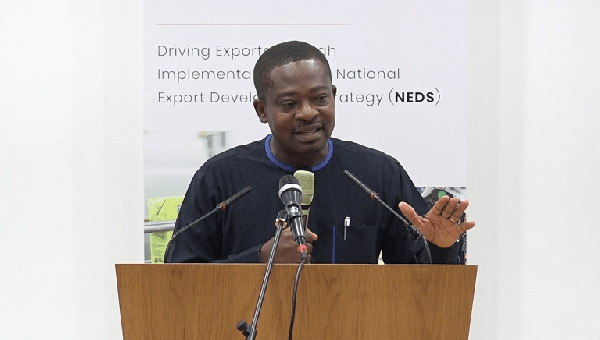- as it demands more action and less talk
The Association of Ghana Industries (AGI) has called for more practical actions and less talk in the quest to boost domestic production and spur economic growth amid the ongoing economic difficulties.
As the bedrock of every strong economy, the AGI said, industry should be deliberately incentivised to enable it withstand ongoing economic challenges and deliver many positive macroeconomic effects – including stimulating commercial activity, new businesses and investments and job creation; arguing that a strong domestic manufacturing base could significantly accelerate and invigorate efforts to restore economic stability by increasing exports, generating more revenue and reducing the weight of imports on the cedi.
“Discussions on the need to develop our local supply chain in a sustainable manner have taken centre-stage since the COVID-19 pandemic outbreak. However, these discussions cannot yield desirable results without government incentivising local industry to invest in the production of certain key raw materials industry needs,” said AGI’s Chief Executive Officer, Seth Twum-Akwaboah.
Mr. Twum-Akwaboah spoke at the 6th Ghana Industrial Summit and Exhibition organised by the AGI in Accra, and lamented that without deliberate policies and initiatives to incentivise industry and attract investments – especially in areas where the country has comparative advantage – all the discussions and plans to make the country an industrial hub will remain mere rhetoric.
Currently, persistent impediments such as the cost of financing, transport and logistics, regulatory compliance, port and Customs clearance, taxation as well as industry-specific imbalances in the tariff regime for imports versus locally manufactured products continue to disadvantage local industry, stated the AGI.
Similarly, President-AGI, Dr. Humphrey Ayim-Darke, mentioned that with the right support from government, domestic producers will be able to scale-up and support economic growth in a more meaningful manner.
“Indeed, only a private sector-led industrial development with meaningful support from government implementing the right policies will create a robust Ghanaian economy and sustainable jobs. Let’s be mindful that our local supply chains have a bearing on current rates of inflation,” he said.
The 6th annual AGI summit, themed Industrialisation through sustainable and efficient supply chains, seeks to address challenges of industry which impede the development of sustainable supply chains and proffer solutions.
Gov’t calls for deeper engagement
In response, the Minister of Trade and Industry (MoTI), Kobina Tahir Hammond, advocated deeper engagement with industry to find long-lasting solutions to challenges facing businesses.
“I have had the privilege of engaging with leadership of the AGI, and issues raised include the cost of financing, transport and logistics, regulatory compliance, port and Customs clearance, and taxation as well as industry-specific imbalances in the tariff regime for imports versus locally manufactured products.
“I have a simple request to make in this regard: when you complain, arm me with specific evidence – and do so in time to make my advocacy precise and effective,” he said.
Nonetheless, the minister underlined that his ministry is fully committed to working closely with industry to strengthen critical supply chains in the industrial sector – especially those linked to local raw material producers and suppliers.
Managing Director of Fanmilk PLC, Ziobeieton Yeo, adding his voice mentioned that industrialisation enables an increase in productivity, employment opportunities and a higher standard of living, ultimately leading to the creation of positive social impact for citizens.
He added that sustainable value chains lead to technological advancements, improved infrastructure and better access to resources.










